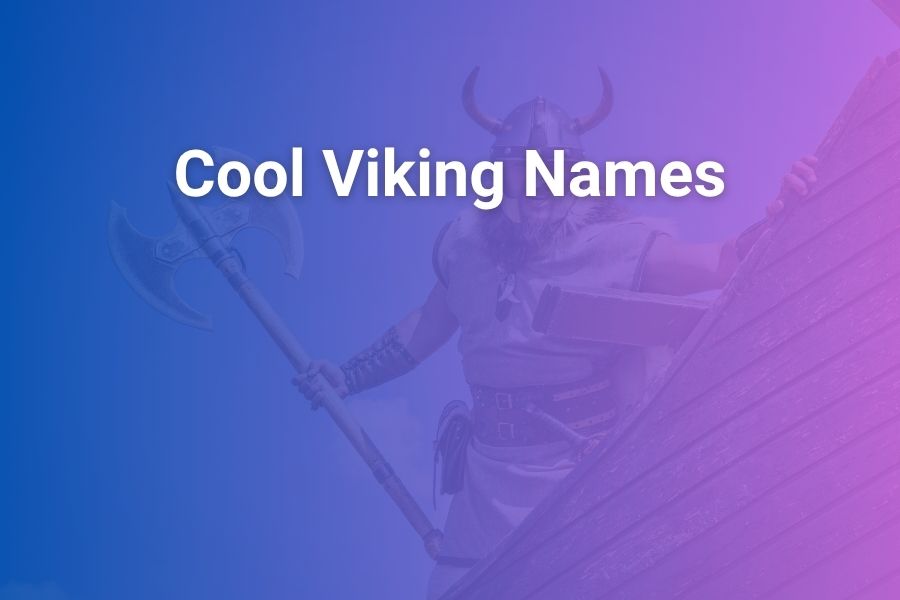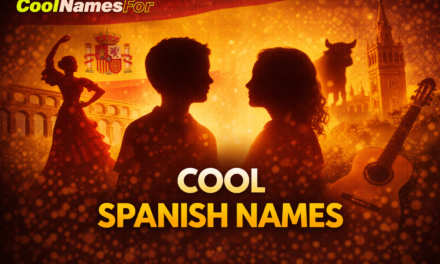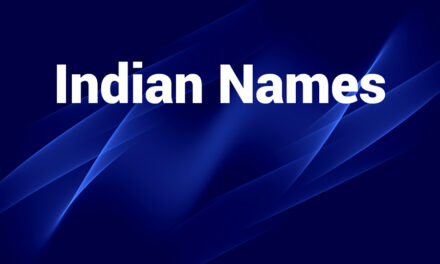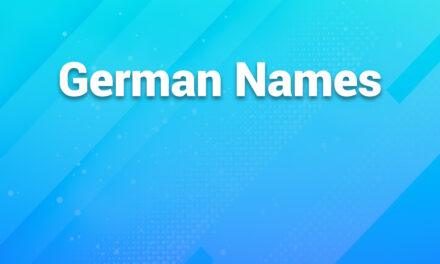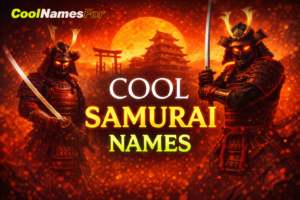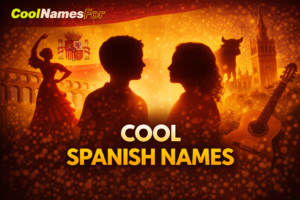The Vikings were fierce explorers, warriors, and traders who left behind more than just tales of conquest. Their names carried power, history, and personality. A Viking name wasn’t chosen by chance—it told a story of courage, heritage, and identity.
These names, often inspired by gods, nature, and strength, are now gaining fresh attention in modern America for their distinct, commanding sound. In this article, you’ll explore the origins, meanings, and cool ideas behind Viking names for men, women, and even modern interpretations you can use today.
The Legacy Behind Cool Viking Names
Viking names have roots in Old Norse, the ancient language spoken across Scandinavia during the Viking Age (roughly 793–1066 AD). These names often combined two meaningful elements—for instance, “Thorstein” joins “Thor,” the thunder god, with “stein,” meaning stone. Every name carried a symbolic meaning tied to traits like bravery, honor, or divine favor.
Historical records, sagas, and rune stones across Denmark, Norway, and Sweden show that names were more than identity—they were personal talismans. A Viking’s name reflected their fate, family legacy, or even their profession. Parents often selected names from ancestors or from nature, such as “Björn,” meaning bear, or “Astrid,” meaning beautiful and loved.
The Cultural Power of Viking Names
Cool Viking names are admired because they embody power and resilience. In today’s world, where uniqueness is prized, these ancient names strike a balance between exotic and timeless. Many Americans have adopted them for their children, drawn to their strength and Nordic heritage. According to recent baby name data from 2024, Scandinavian-inspired names like Freya, Leif, and Soren have risen in U.S. popularity charts, especially among parents seeking rare yet meaningful options.
The Viking aesthetic—marked by boldness, independence, and mystery—also plays into modern culture. From TV series like Vikings and The Last Kingdom to popular video games, these names carry weight and allure. They sound powerful yet ancient, appealing to those who want a name that makes an impression.
Male Viking Names with Strong Meanings
Old Norse male names were designed to evoke fear, respect, and admiration. They symbolized strength, protection, and a bond with nature or gods. Here are some examples of cool Viking names for men and their meanings:
- Erik – “Eternal ruler.” One of the most famous names from Viking history, carried by rulers like Erik the Red.
- Björn – “Bear.” A symbol of power and bravery in battle.
- Leif – “Heir” or “descendant.” Most famously known as Leif Erikson, the explorer believed to have reached North America before Columbus.
- Arne – “Eagle.” Represents courage and freedom.
- Gunnar – “Warrior.” Derived from “gunnr,” meaning battle, and “arr,” meaning fighter.
- Ragnar – “Strong army.” Known from legendary sagas, including Ragnar Lothbrok.
- Torsten – “Thor’s stone.” A name that connects to Thor, the Norse god of thunder.
- Harald – “Ruler of the army.” A regal name used by multiple Viking kings.
- Vidar – “Silent warrior.” Associated with Norse mythology’s avenger of Odin.
These names weren’t just random choices. Each one tied its bearer to heroic ideals or divine lineage, making it more than a label—it was a destiny.
Female Viking Names That Speak Strength and Grace
Viking women were far from passive figures. Many held property, commanded ships, and even fought in battle. Their names reflected both their beauty and their strength. Here are some inspiring female Viking names that remain cool and relevant today:
- Freya – “Lady.” Named after the Norse goddess of love, beauty, and war.
- Astrid – “Divinely beautiful.” A popular Scandinavian name still used widely today.
- Sigrid – “Victory” and “beautiful.” Reflects pride and success.
- Ingrid – “Beloved of Ing.” A powerful yet graceful name.
- Solveig – “Sun strength.” Associated with radiance and determination.
- Thyra – “Thor’s battle.” A historical queen’s name.
- Helga – “Holy” or “blessed.” Deeply spiritual and enduring.
- Gudrun – “Divine secret.” Popular in ancient sagas.
- Brynhild – “Armored battle maiden.” Connected to the legendary Valkyrie.
These names combined femininity with fierce energy. Many Viking women held positions of influence, running farms, trading goods, and defending homesteads—reflected clearly in these timeless names.
How Viking Names Were Formed
Viking naming traditions often followed patterns combining meaningful elements. For example:
- Nature-based names: Björn (bear), Ulfr (wolf), Orvar (arrow).
- Divine connection: Thorstein (Thor’s stone), Asmund (divine protection).
- Warrior spirit: Gunnhild (battle maiden), Sigurd (victory guardian).
- Virtue and fate: Einar (one who fights alone), Runa (secret lore).
Parents often reused ancestral name elements. If a grandfather was named “Thorvald” (Thor’s ruler), his grandson might be “Thorbjörn” (Thor’s bear). This practice linked family generations under divine or heroic traits, reinforcing heritage and unity.
Viking Naming Customs and Beliefs
Vikings believed that names carried spiritual weight. A well-chosen name could bless a child with the strength of gods or ancestors. They also thought that if a person lived with honor, their name would live on forever. That’s why many Vikings were named after heroes or warriors from sagas—they wanted their children to inherit greatness.
Nicknames were also a big part of Viking identity. Warriors earned descriptive nicknames like “Erik the Red” or “Harald Bluetooth.” These names marked achievements, physical traits, or personality quirks. In a society built on oral storytelling, nicknames made reputations stick.
Modern Revival of Cool Viking Names
In the 2020s, Viking names have made a strong comeback, especially in the United States. Cultural fascination with Norse mythology, fueled by pop culture, has made names like Loki, Freya, and Ragnar recognizable even among non-Scandinavian families.
Recent U.S. baby name statistics show:
- Freya ranked among the top 200 female names in 2024.
- Soren and Leif rose steadily in male rankings.
- Bjorn entered the top 500 list for boys for the first time in a decade.
Parents love the mix of history and individuality. A name like Astrid feels vintage yet fresh. Ragnar or Gunnar sounds strong but not overused. Even Hollywood has contributed—characters in Marvel’s Thor movies or the Vikings series inspired a surge of interest in these names.
Viking Names in Pop Culture and Beyond
From books and games to TV, cool Viking names have become symbols of raw courage and adventure. Characters named Lagertha, Ubbe, and Ivar in the Vikings series made Norse names household words. Even fantasy franchises borrow Old Norse roots for their world-building because they sound ancient yet striking.
In gaming, titles like Assassin’s Creed: Valhalla revived the Viking age, giving players customizable characters with authentic Norse-inspired names. This exposure helped normalize Viking names for modern use beyond Scandinavia.
Choosing the Right Viking Name Today
If you’re considering a Viking-inspired name for a child, project, or even a fictional character, think about what meaning resonates most. Do you want a name tied to strength, beauty, wisdom, or nature?
Here’s a simple way to narrow it down:
- For power: Ragnar, Gunnar, Björn, Freya.
- For wisdom: Odin, Sigrid, Runa, Asmund.
- For nature: Arne, Solveig, Ulfr, Eira.
- For uniqueness: Skadi, Torvald, Ingrid, Viggo.
You can even blend Old Norse roots with modern naming styles to create distinctive names that sound fresh yet timeless.
Viking Surnames and Legacy
Many Viking surnames came from patronymics—identifying a person by their father’s name. For example, “Eriksson” means “son of Erik,” while “Olafsdottir” means “daughter of Olaf.” This custom is still present in Iceland today.
Other surnames described appearance or place of origin. “Harald Bluetooth,” for example, got his name from a dead tooth that looked blue. Names like these told stories, and each one carried pride and history.
Symbolism and Modern Appeal
What makes Viking names so cool is their balance of simplicity and depth. They sound rugged but meaningful, ancient yet stylish. Many are short, easy to pronounce, and filled with character.
In a world where individuality matters, Viking names represent more than history—they’re about standing out. They remind us of a time when names meant destiny and identity, not just a label on paper.
Today’s parents and creators often seek names that carry emotional and cultural weight. Viking names, with their fusion of myth and meaning, offer that perfectly. Whether you choose Freya for beauty, Björn for strength, or Leif for adventure, you’re tapping into a thousand-year-old tradition of identity and pride.
Conclusion: The Enduring Cool of Viking Names
Cool Viking names continue to captivate people worldwide because they tell a story—a story of courage, connection, and timeless appeal. Each name echoes the wind over Nordic seas and the fire of ancient hearths. Their revival proves that strength and meaning never go out of style.
Choosing a Viking name today isn’t just about sound—it’s about legacy. It’s about honoring the resilience and spirit of a people who carved their own fate. Whether for a child, a character, or simply inspiration, Viking names remind us that boldness is eternal.

